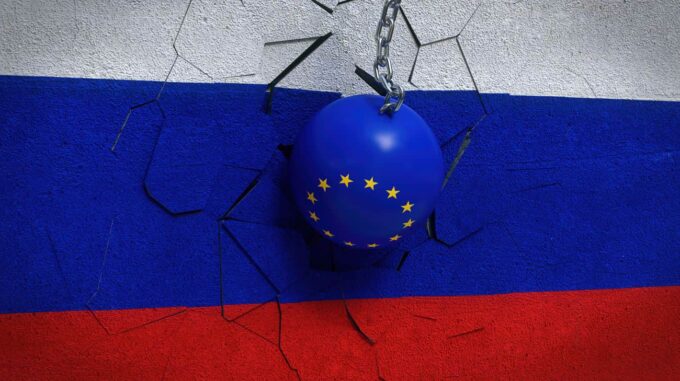EU agrees to extend sanctions against Russia, but has not yet agreed on a new package of restrictions

European Union leaders reached an initial agreement on a long-term extension of existing sanctions against Russia for another six months, but on June 26-27 during a summit in Brussels they did not reach an agreement on approving a new package of economic restrictions. This means that the sanctions that are already in force remain in force, but there will be no new measures envisaged by the 18th package for the time being. According to sources of "European Truth", citing an article by the editor of "Radio Liberty" Rikard Jozwiak, this agreement was reached at the political level. The leaders agreed to extend all existing sanctions - restrictive measures against institutions, individuals and economic sectors of Russia - for another six months. However, analyzing the situation in more detail, it can be noted that discussions on the new, 18th package of sanctions still remain open. The key reason for the indecision is the disagreement between member states, in particular Slovakia, which has expressed its intention to stop the vote on new restrictions until the issues related to gas supplies are resolved. Slovak Prime Minister Robert Fico previously stated that his country would insist on postponing the vote on the 18th package of sanctions until the energy supply problems after 2027 are resolved. According to Fico, if the postponement is refused, the Slovak ambassador will receive a clear instruction to veto the relevant document. At the same time, the Slovak embassy previously reported that the country was ready to support the sanctions, but with the requirement of guarantees and support from the European Union in ensuring the stability of gas supplies and mitigating the consequences of such a negative impact. Another important position was voiced by Latvian Prime Minister Evika Silinė. She noted that, although the prospect of agreeing on the 18th package on Thursday looks doubtful, her country will not stop its efforts to impose new sanctions on Russia. Silinya stressed the importance of maintaining unity and perseverance on this issue, taking into account not only the current situation, but also future challenges. The current format of negotiations and discussions on sanctions on June 26-27 is one of the key topics of the upcoming EU summit. Leaders are expected to discuss further policy towards Russia, including possible new sanctions measures, as well as positions on possible compromises with countries that express their concerns or insist on postponing the introduction of new restrictions. Moreover, in the context of Ukraine’s long-term strategic consideration of EU membership and the EU’s position on sanctions levers, analysts expect a more active discussion of the possibility of applying tougher restrictions to stop Russian aggression. And also — determining ways to support Ukraine in this process against the background of global political transformations, in particular in the context of relations with the USA and the countries of the European Union. More details about the prospects of the sanctions policy of the European Union — in the article: "The European Union between Orbán and Trump. What news can Ukraine expect regarding sanctions and membership in the EU."

